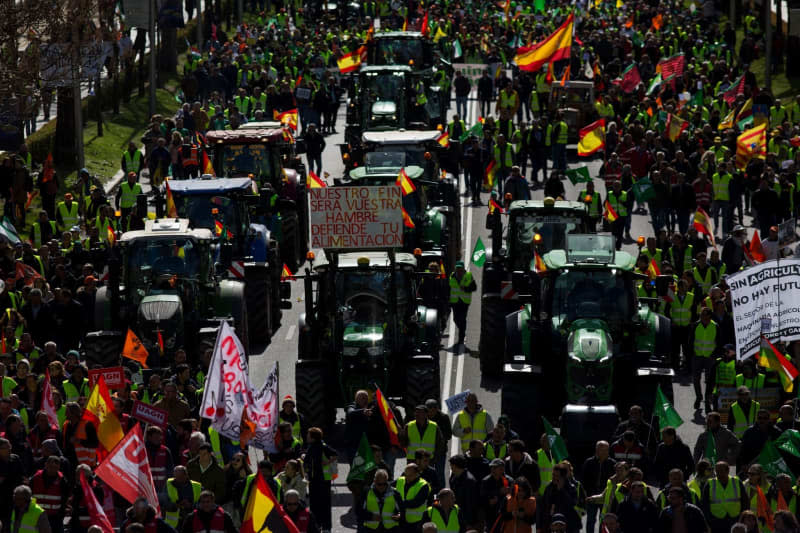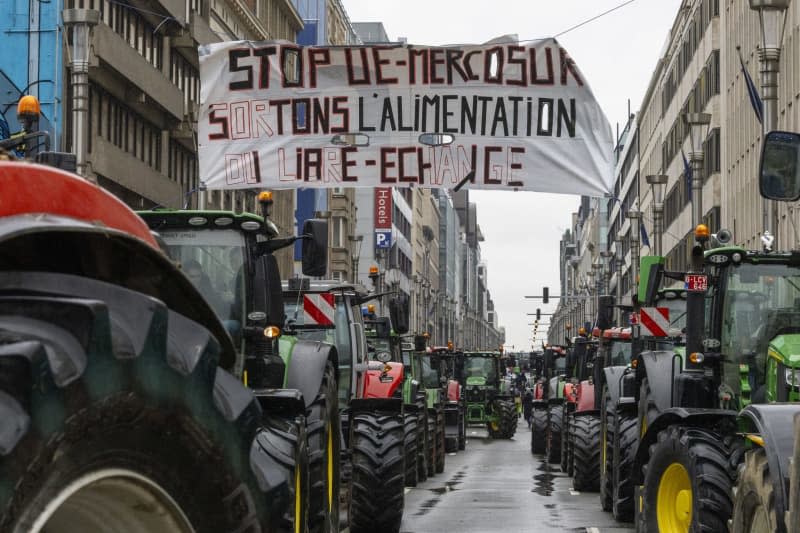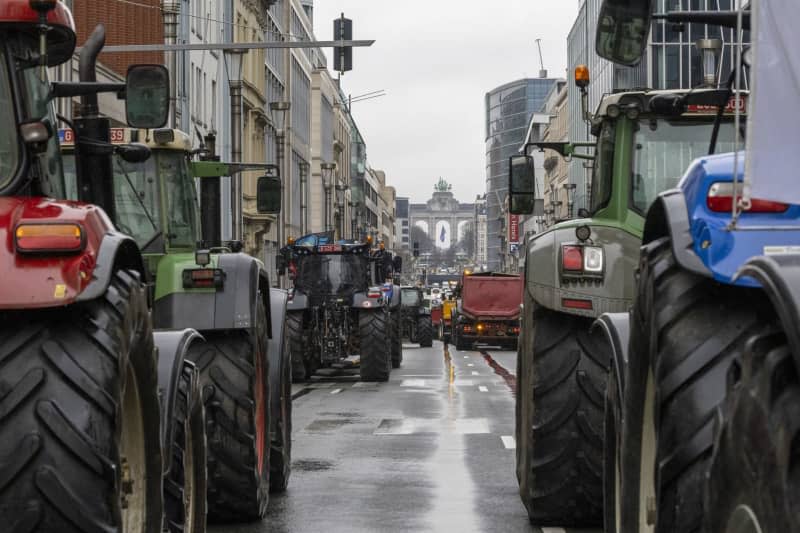Furious farmers protest income loss, EU regulations in Brussels

Convoys of farmers protesting agricultural regulations and food imports occupied the EU quarter in Brussels on Monday, blocking roads and lighting fires.
Tractors have cut off road access to the European Commission and other European Union buildings, while riot police have built barricades to keep the farmers at bay. Police have also closed two metro stations serving the area and restricted press access.
While farmers' protests are common in Brussels, Monday's demonstrations are the most extravagant the city has seen since the anti-establishment "yellow jackets" marches in 2018.
Farmers say they're angry about burdensome regulations and cheap imports, particularly from Ukraine. Falling incomes from agricultural produce are also a major source of anger.
The air was filled with smoke and the sound of explosions as farmers burnt tyres and threw eggs at the police and set off large fireworks. Farmers also used tractors to dismantle police barricades.
On Rue de la Loi, the main thoroughfare leading to the European Commission's headquarters, a tractor bearing a sign saying "Imports = Pollution" pushed a burning substance onto a pedestrian crossing. Farmers also sprayed hay and spilled liquid manure onto the roads.
Police deployed tear gas to disperse crowds and used water cannons to extinguish the fires.
With tractor engines revving outside, EU agricultural ministers met to pacify the farmers' fury with a raft of measures under proposal to loosen usually strict access rules to Common Agricultural Policy (CAP) subsidies.
Among other things, EU ministers want to offer more flexibility for farmers around land use requirements and farm inspections to receive finances from the bloc's flagship agricultural fund.
Another gesture was the previous withdrawal of a controversial commission proposal for a law to cut pesticide use.
European Commission President Ursula von der Leyen followed up on the move with the formal announcement of her bid for a second term.
While that will be decided behind closed doors by EU leaders, not voters, the decision may be viewed as an attempt from the centre-right German politician to boost her reappointment chances by taking a softer line on environmental regulations for farmers.
The economic effects of the Russian invasion of Ukraine on the EU's grain market were also on the ministers' agenda with the impact of the bloc's suspension of tariffs on Ukrainian exports under scrutiny.
Russia has tried to stop Ukraine from exporting grain products to hit the country's economy and create global market instability. As a relief measure, the EU suspended tariffs to support Ukraine and maintain global supply chains.
However, a new method is needed "so that agricultural products from Ukraine can go to their traditional markets outside of the EU," Belgian Minister of Agriculture, David Clarinval said after the meeting.
"At the moment, the Russians are using this lever to destabilize Ukraine and the rest of Europe," he said.
The tariff suspension is causing a major economic distortion, EU Agricultural Commissioner Janusz Wojciechowsk said. "No market can sustain this kind of increase of imports in such a short time."
Asked to address the violence of the farmers' protests in the Belgian capital, Clarinval said the scenes were "negative for the world of agriculture."
"I don't think it's the right way of negotiating," he added.
Despite EU agricultural ministers' efforts on Monday, the non-governmental organization World Wide Fund for Nature (WWF) warned that farmers concerns are not being addressed by the new measures.
"The European Commission is running around like a headless chicken throwing environmental measures under the tractor," Anu Suono, agriculture policy expert at WWF, said in a statement.
"They are failing to solve farmers' real problems by tackling unfair pricing and a Common Agricultural Policy that is no longer fit to secure our food supply in the long-term," she added.



